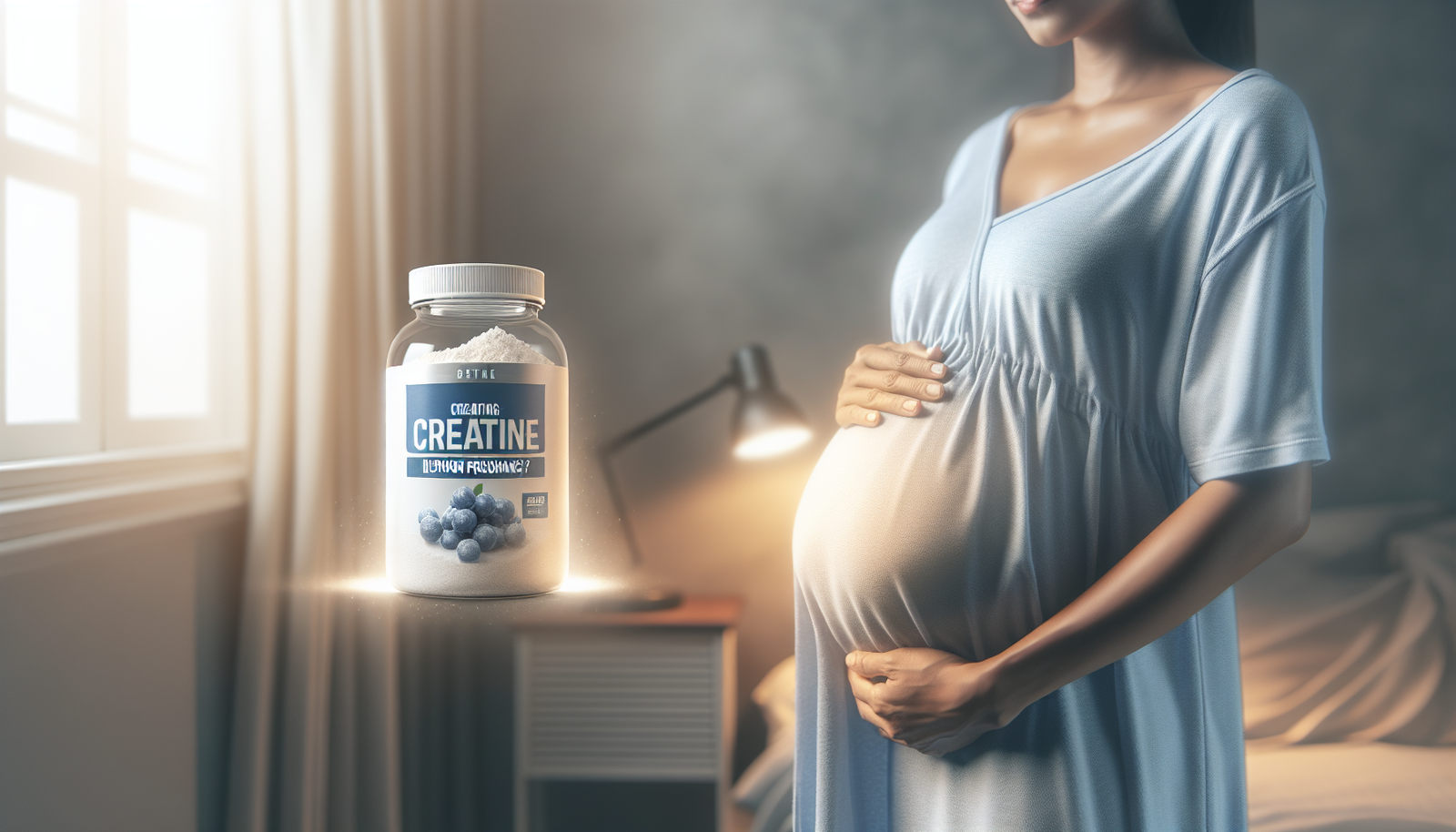Are you expecting and wondering if it is safe to take creatine during pregnancy? This article examines the safety considerations and potential risks associated with creatine supplementation while pregnant. It is crucial to prioritize the health and well-being of both you and your baby, so let’s explore the facts about using creatine during pregnancy.
Introduction
Hey there! Congratulations on your pregnancy journey! During this special time, it’s crucial to take care of your health and ensure you’re making informed decisions about what you consume. One question that often arises is whether creatine, a popular supplement known for its performance-enhancing benefits, is safe to use during pregnancy. In this article, we’ll dive into the topic and explore the relationship between creatine and pregnancy.
Understanding Creatine
Definition of Creatine
Creatine is a naturally occurring compound that plays a vital role in energy production within our bodies, particularly in muscles. It is produced by our liver, kidneys, and pancreas, and can also be obtained through dietary sources such as meat and fish. Creatine is primarily stored in the muscles and used to generate adenosine triphosphate (ATP), the energy currency of the body.
Creatine as a Performance Enhancer
Creatine is widely recognized for its potential to enhance exercise performance and improve muscle strength and power. Many athletes and fitness enthusiasts use creatine supplements to maximize their athletic performance and support their fitness goals. It works by increasing the availability of ATP in the muscles, allowing for increased energy production during high-intensity activities.
Pregnancy and Nutrition
Importance of Nutrition During Pregnancy
When it comes to pregnancy, proper nutrition is of utmost importance. The food you eat directly impacts your health and the development of your growing baby. A well-balanced and nutrient-rich diet helps ensure the optimal growth and development of your fetus, as well as supporting your own well-being during this critical time.
Recommended Nutrient Intake for Pregnant Women
During pregnancy, your nutritional needs increase to support the growth of your baby and to maintain your own health. It is generally recommended that pregnant women consume a diet rich in various nutrients, including folic acid, iron, calcium, omega-3 fatty acids, and vitamins such as A, C, and D. These nutrients play crucial roles in fetal development, preventing birth defects, and supporting overall maternal health.
Safety Concerns
Potential Risks of Creatine Use
While creatine has been extensively studied and proven safe for most individuals, its safety during pregnancy is not yet fully understood. Due to the limited research available, it is advisable to exercise caution and avoid creatine supplementation during pregnancy. Creatine may have potential risks that could impact both the mother and the developing fetus.
Effects on Fetal Development
The effects of creatine supplementation on fetal development have not been extensively studied in pregnant women. Animal studies suggest that high levels of creatine consumption during pregnancy could potentially affect fetal growth and development. However, it is important to note that these findings may not necessarily reflect the impact in humans.
Research on Creatine and Pregnancy
Limited Studies
Currently, there is a lack of scientific studies specifically focusing on the safety and effects of creatine supplementation during pregnancy. The limited research that does exist mainly consists of animal studies or in vitro experiments. While these studies can provide valuable insights, they cannot provide definitive answers regarding the safety and effects of creatine on human pregnancies.
Ethical Limitations
Conducting research on pregnant women presents ethical challenges and concerns. Due to the potential risks involved, it is not ethically feasible to conduct large-scale studies involving pregnant women and creatine supplementation. This lack of research poses challenges in providing concrete recommendations regarding creatine use during pregnancy.
Professional Recommendations
Medical Experts’ Standpoint
Medical experts generally advise against the use of creatine supplements during pregnancy. The American College of Obstetricians and Gynecologists (ACOG) and the American Pregnancy Association recommend that pregnant women should prioritize obtaining nutrients from a well-balanced diet rather than relying on supplements, including creatine. It is essential to consult with your healthcare provider before starting or continuing any supplement during pregnancy.
Advice from Obstetricians
Obstetricians, who specialize in pregnancy and childbirth, also caution against the use of creatine supplements during pregnancy. They emphasize the importance of focusing on proper nutrition and obtaining essential nutrients through a well-rounded diet to support both maternal and fetal health. Obstetricians play a vital role in guiding pregnant women through their journey and can provide personalized advice based on individual needs and health considerations.
Alternatives to Creatine
Safe Supplements During Pregnancy
If you’re looking for safe ways to support your health during pregnancy, there are several supplements that are considered safe and beneficial. Prenatal vitamins, which are specifically formulated to meet the increased nutrient needs during pregnancy, are a popular choice. Additionally, supplements such as omega-3 fatty acids (found in fish oil) and iron can also be beneficial when recommended by a healthcare professional.
Natural Dietary Sources of Creatine
Instead of relying on creatine supplements, you can obtain creatine naturally through your diet. Foods rich in creatine include red meat, poultry, and fish. These sources not only provide creatine but also offer a wide range of other essential nutrients. Including a variety of these foods in your diet can help support your energy levels and provide additional benefits during pregnancy.
Conclusion
In conclusion, the safety of creatine use during pregnancy remains uncertain due to limited research and ethical limitations. While creatine has shown promising results in enhancing athletic performance, it is best to err on the side of caution and avoid using creatine supplements during pregnancy. Instead, prioritize a nutrient-dense diet and consult with your healthcare provider to ensure you and your baby receive the necessary nutrients for a healthy pregnancy. Remember, your health and the well-being of your baby are of utmost importance, and making informed decisions will help you navigate this exciting journey smoothly.
